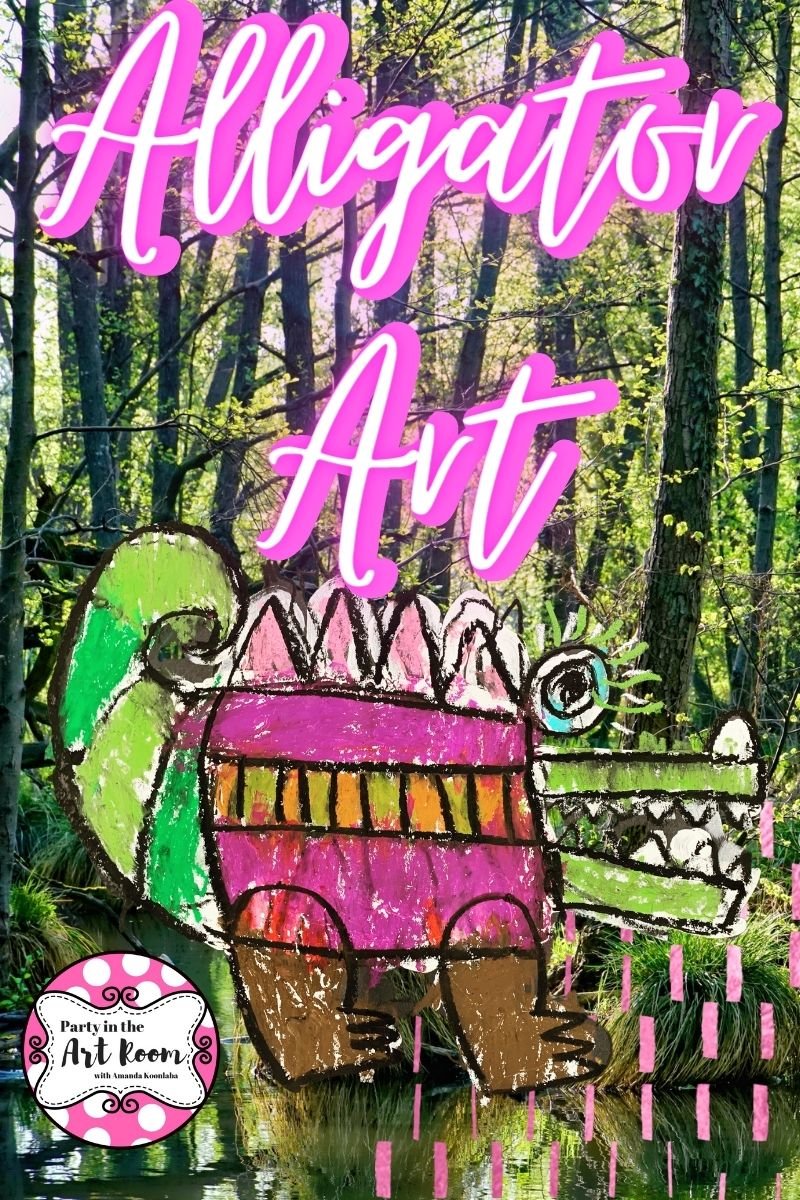Alligator Art Activities
Alligators are large reptiles and are closely related to the crocodile. People often confuse one with the other; however, these two reptiles are very different. An alligator is distinguished by its wide, rounded snout and black color. Little tips like this can make for a great study about alligators, and while your students are learning, don’t forget to include alligator art activities.
🐊 Grab the Full Folk Art Alligators Lesson Plan 🐊
Unlock the magic of folk art with our full lesson plan.
Teach your students to explore folk art with this complete lesson plan. You’ll get a non-editable PDF, master works analysis, standards alignment, differentiated instruction, assessments, student reflections, teacher reflections, a lesson sequence and guided drawing exercises plus much more!
Unleash the creativity of your class - grab our full lesson plan now!
Alligator Game
Materials needed: pom pom balls, cotton balls, alligator printout, box
My students thoroughly enjoyed the Hungry Hungry Gator Game. I used pom poms and cotton balls and placed them all over the floor of the classroom. Start dropping them casually without saying anything. The idea of the game is to have students work to pick up as many as they can in 60 seconds. After 60 seconds, estimate how many were collected and deposited in the gator*. Challenge the kids to do even more a second time.
*To make a gator, use a picture of an alligator with its mouth open. Cut it out and paste it on a box. For the one pictured below, the box was painted with textured foam paint rollers. The gator was created on the box in the same manner and using the same materials as the artwork.
Gator Art Project
Materials needed:
Long black construction paper
White tempera paint
Oil pastels
Pencils
Water
Paint brushes
Paper towels
Directions: Have students put their names on back of their paper with a pencil. Use directed drawing with water first to show how to draw a gator on the paper. Have them dip their finger in water and draw on the paper. They can also do this with a paintbrush if any students have sensory issues and don’t want to touch the materials directly. The water will show up on the paper, which is a great way to practice drawing. Then, recreate the gator with white paint on the black paper. You can model painting each shape while instructing the students to copy you.
Once the gator has been drawn, use oil pastels to add patterns, color, and shapes to the gators. Encourage your students to be creative.
These alligators were inspired by folk artist Andy Saczynski. Have your students view and analyze his works before they begin their own. This will help them be better prepared to create patterns in their works.
Create an Alligator Unit Study
Using an art activity is just one way to build an alligator unit study. Some other activities to add are:
Read alligator themed books.
Research alligators.
Watch videos of real alligators in their habitat.
Create an alligator lapbook.
For younger children, you can also use the word alligator to teach about the letter “Aa” and the phonetic sound of the letter “Aa”. There are also other crafts that can be done like using the handprint and forearm to make an alligator painting.
If you are looking for ways to incorporate alligator art and games into your next unit study, be inspired by this post!
Teach Folk Art: Get your Full Lesson Plan Today! ✅
An Easy, Ready-to-Go Teaching Resource
Make teaching folk art fun and easy with our full lesson plan. Everything you need to teach a folk art alligator project is included - from the non-editable PDF and master works analysis to standards alignment, differentiation, assessments, student reflections, teacher reflections, lesson sequence, process photos and guided drawing.



